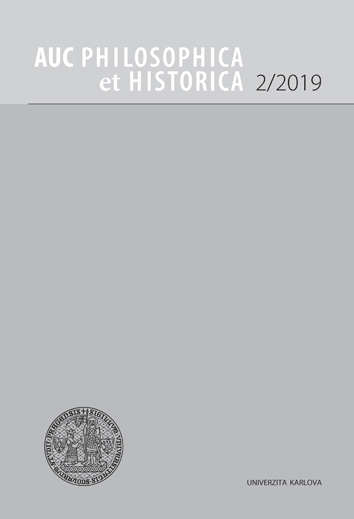Konec umění?
The End of Art?
Author(s): Eva DrexlerováSubject(s): History of Art
Published by: Univerzita Karlova v Praze, Nakladatelství Karolinum
Keywords: aboutness; Aristotle; Danto; essence of art; embodiment; Gombrich; Hegel; the artworld; the language of art; the post-historical era; schemata
Summary/Abstract: The essay is dedicated to the end of art topic from the perspective of one of the most important Anglo-American philosophers Arthur Danto. The first part is devoted to Danto’s end of art thesis that reinterprets Hegel’s prediction that art will end in its transmutation into philosophy. Having arrived at the limit of its innate drive for self-understanding, art is now recognised through the theories of the artworld, confirming Hegel’s vision. Art is set free to express itself in any possible style, yet such flexibility is bought at a price. For philosophy now takes over the responsibility of art’s definition and operates as an interlocutor, communicating the embodied meaning that is no longer recognised by the beholder. The second part defends art against the notion that it has come to an end and, by recalling Aristotle’s Poetics and Ernst Gombrich’s Art and Illusion, proposes an alternative theory that is able to explain art’s historic turns while circumventing the pitfalls encountered by Danto. Although the way art is produced has fundamentally shifted, its internal narrative, as will be demonstrated, has not changed in the manner Danto advocates.
Journal: Acta Universitatis Carolinae Philosophica et Historica
- Issue Year: XXV/2019
- Issue No: 2
- Page Range: 127-147
- Page Count: 21
- Language: Czech

